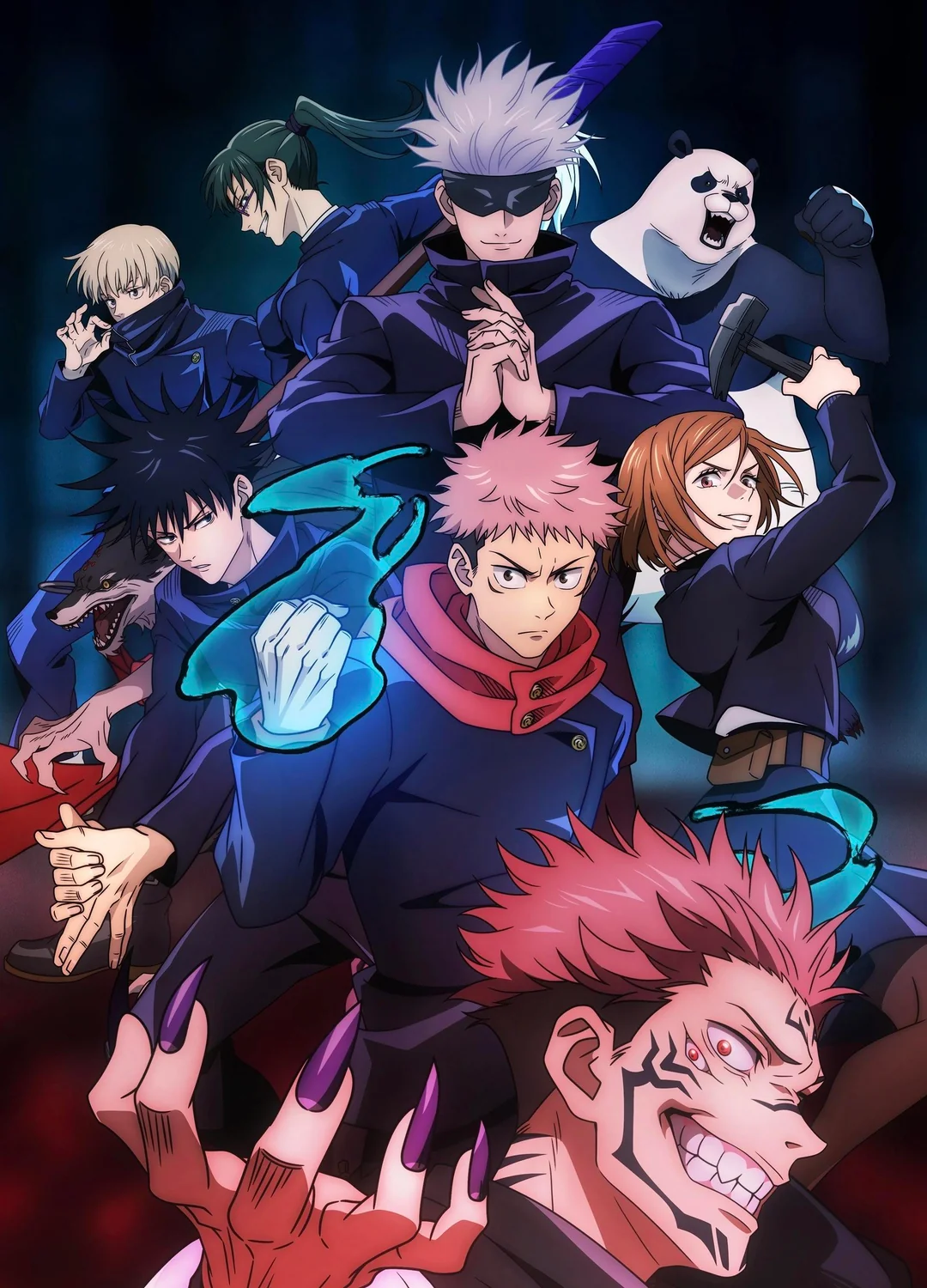Jujutsu Kaisen
By: Anime Lover

In a world where curses born from human fear and hatred lurk in every shadow, Jujutsu Kaisen rises as a tale that blends heart-pounding battles, gut-wrenching tragedy, and sparks of fun into a single relentless journey; at its center is a boy who never asked for greatness but steps into it when destiny throws him against monsters that should not exist, and around him gathers a cast of warriors each carrying scars deeper than the weapons they wield — the stoic mentor who hides grief behind strength, the fiery girl who refuses to bow to society’s chains, the sarcastic friend whose loyalty burns brighter than his humor, and the prodigy whose very existence blurs the line between hope and despair; together they fight, bleed, laugh, and grow, clashing against grotesque foes whose cruelty is born not from cartoon evil but from the very flaws of humanity itself, a reflection that makes every battle cut twice — once on the skin and once in the heart; the story flows like a storm, sometimes dazzling with ridiculous comedy, sometimes sinking into silence so heavy it feels like the world itself is mourning, and then exploding again into fights that redefine what anime action can look like, where martial arts meet sorcery and each blow carries not just strength but philosophy; yet behind the spectacle is a constant thread of character development, friendships forged under impossible pressure, rivalries that sharpen both sides, mentors who teach by both kindness and cruelty, and villains whose darkness is uncomfortably close to human truth, making the tale not just about exorcising curses but about surviving the curse of being alive in a world that never stops hurting; season one lays the foundation, showing us the bonds forming, the playful banter masking trauma, the small victories earned with blood, and the idea that youth can still laugh even as they dance with death, while season two rips open the truth behind those smiles, diving into the backstories that explain why some characters are broken yet unyielding, and why others turn their pain into blades aimed at the world, unfolding arcs that are breathtaking in action yet devastating in consequence; the fights grow bigger, the fun moments grow sharper, the betrayals sting deeper, and the entire saga becomes less about defeating monsters and more about understanding what it means to choose kindness when cruelty is easier, to keep fighting even when victory means only survival, to keep living when loss seems unbearable; and in this way, Jujutsu Kaisen stands as one of anime’s most violent yet poetic tales, warning tender-hearted viewers that its beauty is painted in blood and sorrow, yet rewarding those who endure with a story of courage, growth, and friendships that shine even in the darkest night, reminding us that in both the cursed world of the show and our real one, laughter and grief are always side by side, and true strength is not about never falling but about always rising again.
Views: 7Show all comments
Comments
Post your thoughts